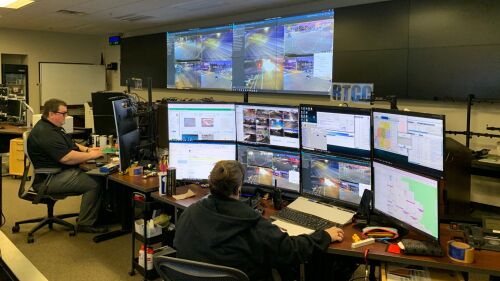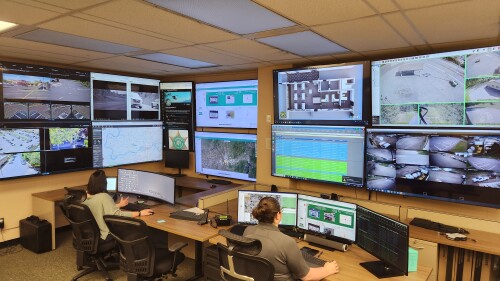Real Time Crime Centers (RTCCs) leverage advanced technology, including live video feeds and license plate recognition systems, to provide law enforcement with actionable intelligence in real time. These centers, also known as Real Time Intelligence Centers or Real Time Information Centers, enable faster police response to incidents, streamline investigations and enhance public safety by integrating tools like geospatial mapping, data-driven crime analysis and automated alerts.
- Iowa LE agencies use recording devices, gunshot detection, mental health app to enhance public safety
- Dallas PD to implement facial recognition tech at real-time crime center
- Proactive policing at a crossroads: Why technology, not discretion, should drive enforcement
- 10 FAQ about real time crime centers
- Fla. sheriff’s office partners with university to create AI-powered cybercrime unit
What is a real-time crime center?
A real-time crime center is a centralized hub where law enforcement agencies collect, analyze, and distribute data in real-time to support active investigations and enhance situational awareness. Using advanced tools like surveillance cameras, license plate readers, and crime mapping tools, RTCCs provide officers with immediate, actionable intelligence, helping them prevent and solve crimes faster.
Where are real-time crime centers located?
They are typically housed within police departments or dedicated facilities. Major urban areas like New York City, Chicago, and Houston have established RTCCs to enhance public safety, while smaller agencies are increasingly adopting similar models to leverage data-driven policing. Their locations vary based on the size and needs of the community they serve.
How much do real-time crime centers cost?
The cost to set up a real-time crime center varies depending on the size of the agency, the complexity of the technology, and staffing needs. Initial setup can range from thousands to millions of dollars, with ongoing maintenance costs including software updates, equipment upgrades, and personnel salaries. Grants and partnerships with private entities can offset these expenses.


































